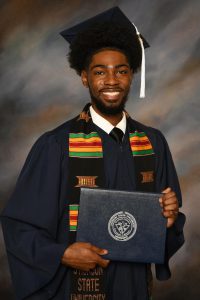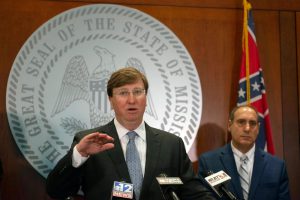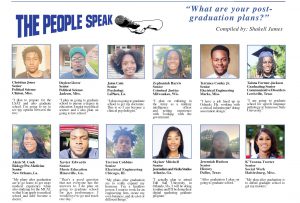 Kenya Ramirez
Kenya Ramirez
Staff Writer/MC301
Across vast lands and over high seas, the COVID-19 Coronavirus has cryptically crept past infected person after infected person — to arrive and spread into the very interiors of our lives.
This contagion, communicated through contact, has touched every layer of us — ever penetrating and ultimately permeating through to our centers. Aside from the harm to our families and the financial ruin of our economy, the spiritual heart of our nation has been broken. The belief and worship – that has laid foundation, built and held current culture has seemingly been compromised.
Has this virus indeed waged an invisible assault against our faith in God? How exactly has the pandemic affected religion? Many stories of our divine trust being challenged are being told and retold amid this pandemic.
Articles lament the stories of this hidden hunter befalling our leaders, leaders that clamored to guide against this crisis, only to be left cut down in its wake. One such recount relives the plight of Virginia pastor, Gerald O. Glenn, who tirelessly crusaded to uphold the concept of congregation, in which he was so fervently and reverently convicted. In the end however, he was relegated to only isolation, succumbing to the virus, alone in solitude, right before the demise of his subsequently infected wife and separate from his now infected daughters and son-in-law.
Another instance involves a devout Baton Rouge, La. parishioner who was stricken by the virus after his pastor, Tony Spell, called and beckoned for his followers to congregate in spite of strong, state orders against it.
We can look at Landon Spradlin, the pastor who defied the virus and played the Blues using the soulful sounds in ministering to the wayward masses congregated at this year’s Mardi Gras. After dying from the disease, Pastor Spradlin would be “other worldly” amid the graveside melodies of the same music medium.
These three accounts evidence that this virus has come to take our ability to connect physically. But, miraculously, it is the mental connections that will restore us.
Even through the long distances, we can see that stripped of the groups that nestle us, bare of the crowds that hide us, in the shadows of the lights and absent of each other, we are all still bound in this pandemic experience.
There’s a welcomed after-effect in the shared intimacy of quarantining ‘contactless’ and quiet of life’s collective clutters, we can clearly hear God. Outside of the lines of workers, we can see color. And, forgiven of the trample of the human footprint, wildlife and our environment can recover and flourish.
The scenes of this human and earthly renaissance abound. A reference of this revitalization is included in the AP News article, “As People Stay Home, Earth Turns Wilder And Cleaner,“ in which Seth Bornstein asserts that “an unplanned grand experiment is changing Earth. As people across the globe stay home to stop the spread of the new Coronavirus, the air has cleaned up, albeit temporarily. Smog stopped choking New Delhi, one of the most polluted cities in the world, and India’s getting views of sights not visible in decades.”
This figurative evolution is also detailed in the New Yorker article, “Finding Connection And Resilience During The Coronavirus Pandemic.” Here, Augustin Fuentes, Evolutionary Anthropologist, denotes that: “Traditions develop because they fit the ecology and biology of the times — and get passed on because the people who do them are better off. The evolution of rituals has already begun in small ways — not congregating, not traveling, or attending meetings virtually.”
Is remote congregation the new normal for religion in this self-reflective age of the pandemic?





Be First to Comment